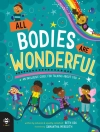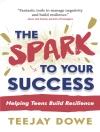Pedagogical Perspectives on Cognition and Writing addresses a scholarly audience in writing studies, specifically scholars and teachers of writing, writing program administrators, and writing center scholars and administrators. Chapters focus on the place of cognition in threshold concepts, teaching for transfer, rhetorical theory, trauma theory, genre, writing centers, community writing, and applications of the Framework for Success in Postsecondary Writing.
The 1980s witnessed a growing interest in writing studies on cognitive approaches to studying and teaching college-level writing. While some would argue this interest was simply of a moment, we argue that cognitive theories still have great influence in writing studies and have substantial potential to continue reinvigorating what we know about writing and writers. By grounding this collection in ongoing interest in writing-related transfer, the role of metacognition in supporting successful transfer, and the habits of mind within the Framework for Success in Postsecondary Writing, Pedagogical Perspectives on Cognition and Writing highlights the robust but also problematic potential cognitive theories of writing hold for how we research writing, how we teach and tutor writers, and how we work with community writers.
Pedagogical Perspectives on Cognition and Writing includes a foreword by Susan Miller-Cochran and an afterword by Asao Inoue. Additional contributors include Melvin E. Beavers, Subrina Bogan, Harold Brown, Christine Cucciarre, Barbara J. D’Angelo, Gita Das Bender, Tonya Eick, Gregg Fields, Morgan Gross, Jessica Harnisch, David Hyman, Caleb James, Peter H. Khost, William J. Macauley, Jr., Heather Mac Donald, Barry M. Maid, Courtney Patrick-Weber, Patricia Portanova, Sherry Rankins-Robertson, J. Michael Rifenburg, Duane Roen, Airlie Rose, Wendy Ryden, Thomas Skeen, Michelle Stuckey, Sean Tingle, James Toweill, Martha A. Townsend, Kelsie Walker, and Bronwyn T. Williams.
เกี่ยวกับผู้แต่ง
Duane Roen has written extensively about writing across the curriculum; writing curricula, pedagogy, and assessment; writing program administration; writing family history; writing and gender; collaboration; and faculty as public intellectuals. In addition to more than three hundred articles, chapters, and conference presentations, He has published eleven books.












